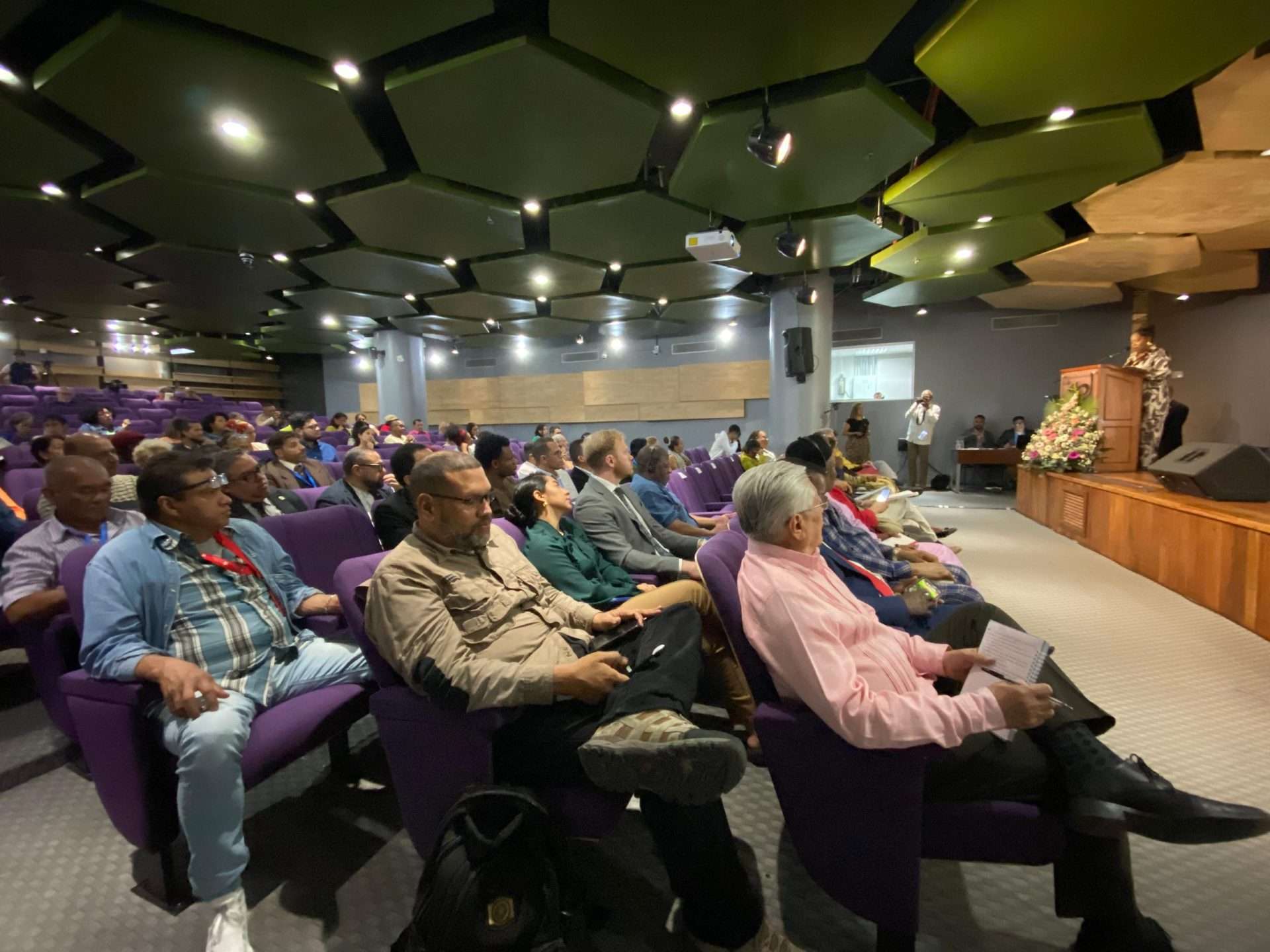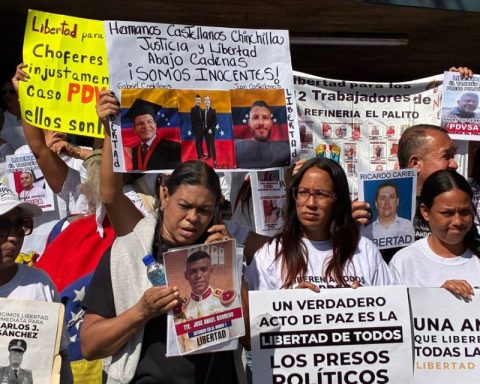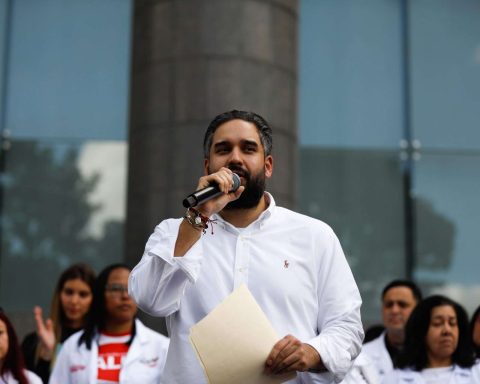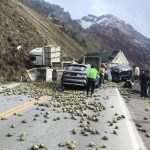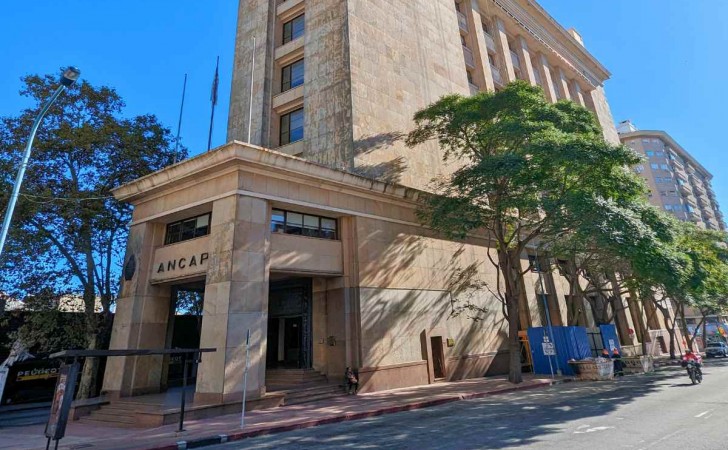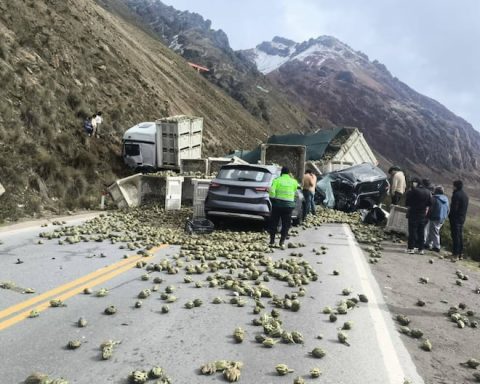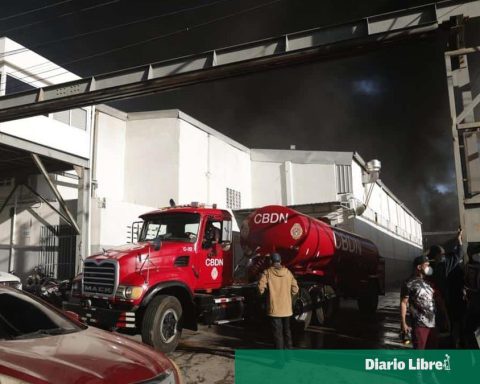At the VII International Congress of African Knowledge and the Global South, Zionism was identified, not as an ideological doctrine, but as part of historical fascism of an organic nature, whose global hegemonistic positioning is situated as the fifth column in Latin America and the entire Global South. .
This is evident in the final document of the conclave that was held on November 27 and 28 at the headquarters of the Salvador Allende Foundation in Caracas.
It highlights that the doctrine of Zionism is based on theological and historical myths, programmatically criminal, supremacist, fundamentalist, expansionist and genocidal.
This after fully expressing solidarity with the Palestinian cause “for the right to a State endowed with its original territory, respect for its people and sovereign government.”
That is why those attending this Congress also demanded “the cessation of the Zionist occupation of the spurious State of Israel; the cessation of US Government support for Zionism; and spiritual and material reparations by Israel to Palestine for the incalculable damage caused since 1948, as well as a UN resolution recognizing the error of dividing the Palestinian region to occupy it with a foreign population.
Furthermore, during the work tables, and fueled by the presentation of Professor Ramón Medero, it was proposed to include the concept of Zionism in the Bill against Fascism, Neofascism and Similar Expressions that is being discussed by the National Assembly.
Solidarity with Haiti
Another highlight of the final declaration was solidarity with the Haitian people for the occupation to which they have been subjected since their independence by Western powers.
“We express our anguish over the perennial situation of hardship that Western imperialism has caused to the people of Haiti, constant victims of occupations against their national sovereignty, endorsed by the UN itself and by governments of the South,” says point 7 of the final document.
In this sense, they called on the governments and people of the South to make investments for the comprehensive development of the Caribbean country.
Eliseo Mora, author of the presentation “Haiti, eternal instability: colonial heritage”, took everything that is the financial reference from the year 1825 to the present that afflicts the Caribbean country.
“Since its independence, on January 1, 1804 until today, a period of colonialism began. But from a financial point of view, it draws my attention that this event that is happening in Haiti could happen in some Latin American countries, specifically the Venezuelan case,” the specialist said.
Mora explained that at the international level there are companies that are going to continue taking actions against the country, through arbitration, due to the external debt.
“We have to find a way to refinance and that, without a doubt, with the problems we have with international banking, it will be difficult for us to reach an agreement to
“Let it be a refinancing that favors the Venezuelan population,” he said.
That is why he highlighted that the Haitian case leaves many lessons not only for Venezuela, but for the people of Latin America, because it shows how Western powers still have colonies in these lands, because there are nations that must continue fighting for their independence.
However, he urged that integrationist experiences such as Petrocaribe continue to be created, in which Venezuela sold oil to the Caribbean nation with low interest and in the long term, and to continue supporting Haiti through the Bolivarian Peace Diplomacy.
reparative justice
Another interesting point presented at the work tables was reparative justice, a presentation led by experts Guillermo Barreto and Ximena González.
Barreto, one of the organizers of the Congress representing the Simón Bolívar Institute for Peace and Solidarity among Peoples, explained that together with the Venezuelan Institute of Scientific Research (Ivic) they are promoting a reflection on the importance of considering reparation as a exercise of political memory.
“Reclaiming a history, a culture, an identity, as an element that allows us to strengthen our identity,” he added.
He recalled that after the occupation of America, the extermination of indigenous peoples was 85%, in addition to millions of Africans kidnapped from their land to become slaves.
“This crime is something that did not remain in the past (…) because the consequences are still seen today, in such a way that reparations are not only now referred or should be referred to demanding that the criminal, the colonizer, apologize and recognition of what he did, but that we should also take actions to prevent this from happening again,” said the expert, who urged the people to continue discussing these issues.
Environmentalism and Sociopolitics
Environmentalism as a sociopolitical phenomenon was also discussed, which was led by experts Samuel García and Mileydis Contreras, who based their data on the theories of Andreas Mals and Gareth Hardin.
Andreas Mals, explains Contreras, talks about ecofacism, ecoterrorism and fossil fascism and fossil capitalism, and how the different governments of Latin America and the Caribbean have used the natural resources of the countries to exploit them and use them at their convenience.
While Hardin talks about the “Tragedy of the commons”, who warns that when a resource exists for common use it is exploited until it is exhausted.
They also talked about the environmental movements that exist in Latin America in response to companies that damage the environment.
“The key to achieving a more balanced environment is the energy transition,” said the expert.

